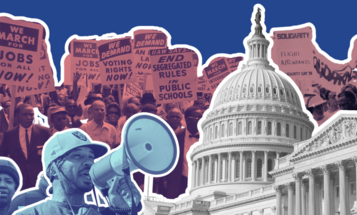
Ending the Policing of Black Bodies in Public Spaces Requires Not Just a Change of Policy but a Change of Heart
Despite the long legacy of discrimination in public accommodations—a central battleground of the civil rights movement—looking at each of these incidents individually allows us to believe the fiction that these are aberrations. [...]
In our nation’s operating system, aggressively controlling black people in public spaces is a feature, not a bug.
These incidents are symptoms of our culture, shaped as much by informal but regular practice as by formal policies. White supremacist rallies are once again held in the open. People are spewing hate speech in the name of the president and racial animus accounted for more of the vote that made Donald Trump president than economic anxiety did.
Formally, the federal government offers its backing to voter suppression through the failed Pence-Kobach commission and, now, the Department of Homeland Security. Trump’s Consumer Finance Protection Bureau has stopped protecting the targets of predatory lenders, who are disproportionately low-income and people of color. And the Department of Housing and Urban Development is removing anti-discrimination language from its mission.
One of the basic premises of learning is that the student wants to learn. In particular, anti-bias training assumes that participants possess the explicit value that bias is bad. But in the context of widespread and explicit racism that has the president’s tacit endorsement, that is an assumption rather than a given. A toxic environment contaminates. But just as rivers can be reclaimed and brownfields can be remediated, communities can form countercultures against bias.
Starbucks is investing in work toward that end, planning to kick off a sustained and comprehensive racial-bias education initiative at the company, which should include changes to company policy. Demos President Heather McGhee, along with Sherrilyn Ifill of the NAACP Legal Defense Fund and Bryan Stevenson of the Equal Justice Initiative, is serving as a pro bono adviser in this effort.


